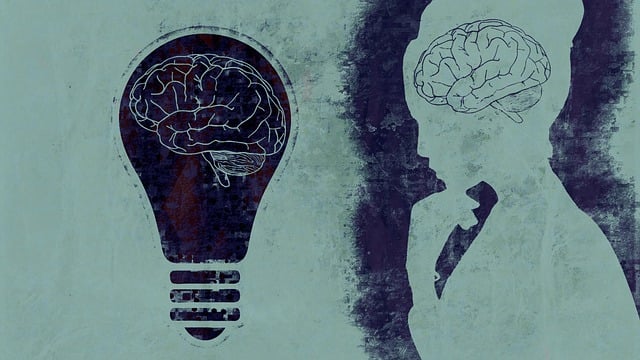Stress, left unchecked, can lead to mental health issues like anxiety, depression, or burnout. Greenwood Village offers a holistic approach combining spiritual-religious therapy with mindfulness practices, exercise, and social connections to build resilience and improve well-being. This community leverages faith as a tool for emotional regulation, integrating meditation, prayer, and communal support into stress management routines. The vibrant village environment fosters empathy, cultural competency, and diverse spiritual beliefs, enabling individuals to navigate life challenges with hope and perspective through holistic wellness practices.
“In today’s fast-paced world, managing stress has become a vital skill for maintaining mental well-being. This article explores comprehensive strategies for stress management, offering insights into its profound impact on mental health. We delve into the significance of spiritual and religious practices in coping with stress, providing a holistic perspective rooted in Greenwood Village therapy approaches.
By examining effective teaching methods, we aim to empower individuals to navigate life’s challenges with resilience. From understanding stress triggers to implementing practical techniques, this guide is a step towards fostering mental wellness, inspired by the therapeutic practices of Greenwood Village.”
- Understanding Stress and its Impact on Mental Health
- The Role of Spiritual-Religious Issues in Stress Management
- Effective Teaching Methods for Stress Management Techniques
- Integrating Greenwood Village Therapy Practices for Holistic Wellness
Understanding Stress and its Impact on Mental Health

Stress is a complex response that arises from various life situations and can significantly impact mental health if left unaddressed. It’s crucial to understand stress as a combination of physiological, emotional, and cognitive reactions to demands placed on us. In Greenwood Village, where spiritual-religious issues therapy is readily available, recognizing the signs and causes of stress is the first step towards managing it effectively. This involves identifying triggers—be they personal, professional, or environmental—that set off our stress response, which can lead to feelings of anxiety, depression, and even burnout if chronic.
The impact of prolonged stress on mental health cannot be overstated. It can distort our thinking, impair judgment, and diminish our ability to cope with daily challenges. Public Awareness Campaigns focused on Burnout Prevention Strategies for Healthcare Providers, for instance, underscore the critical need to manage stress not just in professional settings but also in personal lives. By integrating mindfulness practices, exercise, and social connections into daily routines, individuals can develop resilience against stress, fostering better mental health outcomes and enhancing their overall well-being.
The Role of Spiritual-Religious Issues in Stress Management

Incorporating spiritual or religious beliefs into stress management practices can be a powerful tool for individuals seeking holistic well-being. Greenwood Village Spiritual-Religious Issues Therapy recognizes that faith and spirituality play significant roles in people’s lives, offering unique perspectives on coping with stress and fostering resilience. Many religious traditions provide structured practices such as meditation, prayer, or communal support, which have been shown to reduce anxiety and enhance emotional regulation. These practices can help individuals cultivate inner strength development and a sense of purpose, ultimately contributing to improved mental health.
By integrating spiritual-religious issues into therapy, practitioners aim to strengthen clients’ communication strategies with themselves and their communities. This approach respects individual beliefs and encourages the exploration of personal values, which can serve as sources of comfort and motivation during stressful times. Research suggests that religious involvement is associated with better coping mechanisms and increased resilience, allowing individuals to navigate life’s challenges with a sense of hope and perspective.
Effective Teaching Methods for Stress Management Techniques

In teaching stress management techniques, a holistic approach that incorporates both traditional and modern practices can be highly effective. Greenwood Village offers a unique blend of spiritual-religious issues therapy, combining ancient wisdom with evidence-based strategies to create a comprehensive learning environment. One powerful method is integrating mindfulness meditation into daily routines, helping students cultivate present-moment awareness and emotional regulation skills. This technique has been shown to reduce stress levels and enhance overall well-being.
Additionally, building empathy among participants can significantly contribute to effective teaching. Empathy-building strategies encourage active listening, perspective-taking, and compassionate communication. By fostering a supportive community, instructors can create a safe space where individuals feel understood and encouraged to share their experiences. This fosters deeper connections and facilitates the exchange of Conflict Resolution Techniques, enabling students to navigate challenging situations with grace and resilience.
Integrating Greenwood Village Therapy Practices for Holistic Wellness

In the heart of Greenwood Village, a vibrant community known for its diverse tapestry, therapeutic practices have evolved to embrace holistic wellness. Beyond traditional talk therapy, residents and visitors alike are discovering the power of integrating spiritual-religious issues into their stress management routines. This approach, often overlooked in mainstream healthcare, recognizes that emotional regulation transcends mere cognitive techniques. By engaging with Greenwood Village Spiritual-Religious Issues Therapy, individuals not only gain insights into coping skills development but also foster a deeper sense of connection to their inner selves and external communities.
Such therapy practices are designed to cater to the unique cultural needs of every individual, as highlighted by Healthcare Provider Cultural Competency Training. This training ensures that therapists are equipped to address the diverse spiritual beliefs and values that influence people’s lives. By embracing these principles, Greenwood Village offers a supportive environment where individuals can explore and integrate their faith or spirituality into their stress management strategies. This holistic approach not only enhances coping skills development but also fosters resilience and overall well-being.
In conclusion, stress management techniques play a pivotal role in enhancing mental health and overall well-being. By understanding the impact of stress and utilizing effective teaching methods, educators can empower individuals to navigate life’s challenges with resilience. Integrating holistic approaches, such as those practiced in Greenwood Village Spiritual-Religious Issues Therapy, offers a comprehensive strategy for stress reduction. These techniques, combined with evidence-based practices, provide valuable tools for managing stress, fostering mental clarity, and achieving a balanced lifestyle.











